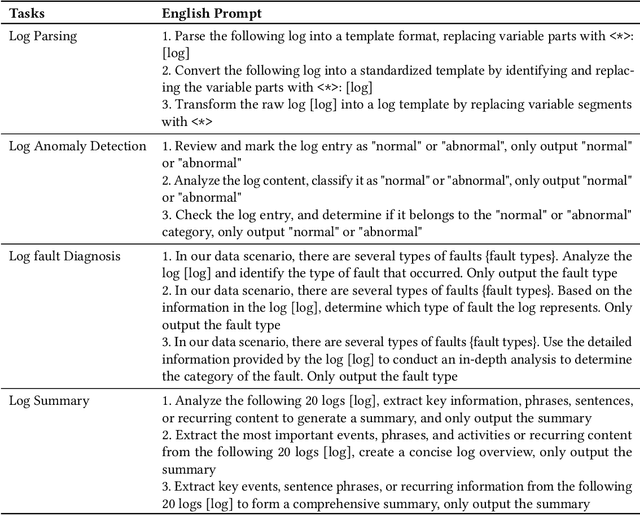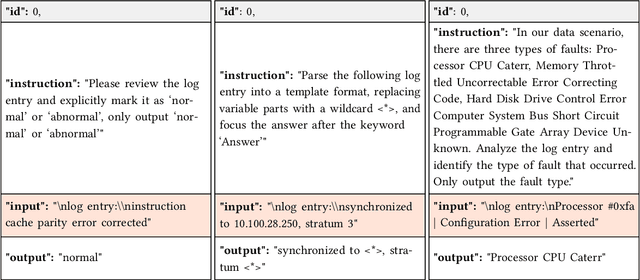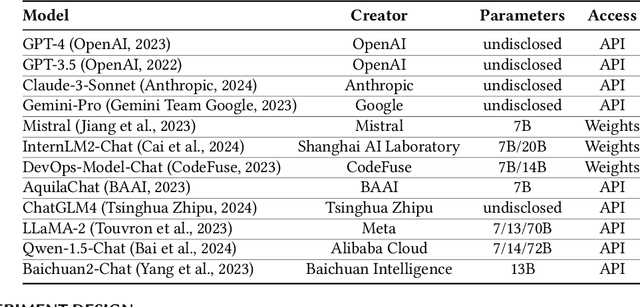LogEval: A Comprehensive Benchmark Suite for Large Language Models In Log Analysis
Paper and Code
Jul 02, 2024



Log analysis is crucial for ensuring the orderly and stable operation of information systems, particularly in the field of Artificial Intelligence for IT Operations (AIOps). Large Language Models (LLMs) have demonstrated significant potential in natural language processing tasks. In the AIOps domain, they excel in tasks such as anomaly detection, root cause analysis of faults, operations and maintenance script generation, and alert information summarization. However, the performance of current LLMs in log analysis tasks remains inadequately validated. To address this gap, we introduce LogEval, a comprehensive benchmark suite designed to evaluate the capabilities of LLMs in various log analysis tasks for the first time. This benchmark covers tasks such as log parsing, log anomaly detection, log fault diagnosis, and log summarization. LogEval evaluates each task using 4,000 publicly available log data entries and employs 15 different prompts for each task to ensure a thorough and fair assessment. By rigorously evaluating leading LLMs, we demonstrate the impact of various LLM technologies on log analysis performance, focusing on aspects such as self-consistency and few-shot contextual learning. We also discuss findings related to model quantification, Chinese-English question-answering evaluation, and prompt engineering. These findings provide insights into the strengths and weaknesses of LLMs in multilingual environments and the effectiveness of different prompt strategies. Various evaluation methods are employed for different tasks to accurately measure the performance of LLMs in log analysis, ensuring a comprehensive assessment. The insights gained from LogEvals evaluation reveal the strengths and limitations of LLMs in log analysis tasks, providing valuable guidance for researchers and practitioners.
 Add to Chrome
Add to Chrome Add to Firefox
Add to Firefox Add to Edge
Add to Edge